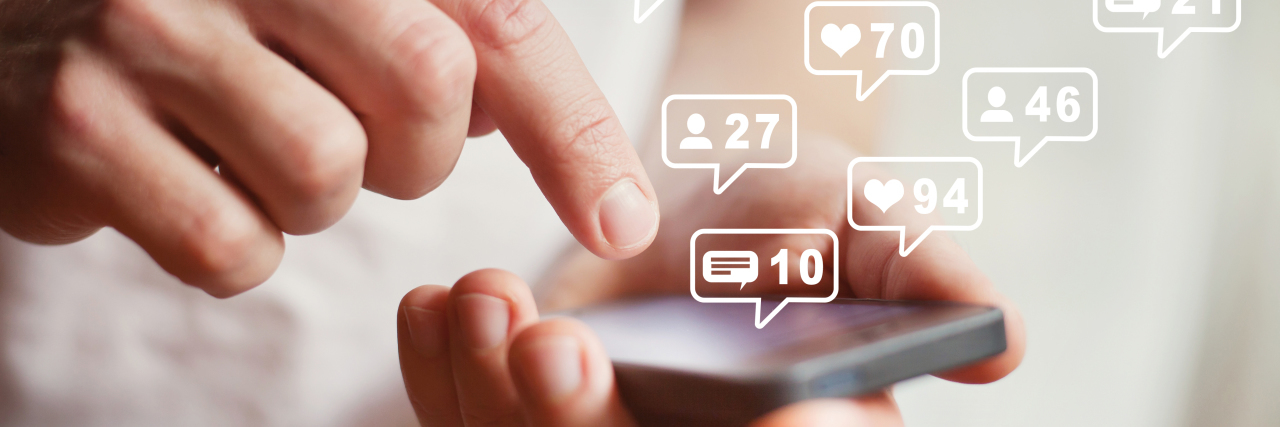The Importance of Keeping Teens With Disabilities Safe on Social Media
A 14-year-old girl tries to kill herself. Her family is devastated and left wondering why. They find out she had been bullied on social media. She was desperate for friends and attention. Apparently, she would post photos to Instagram and if they did not get a certain number of likes in an hour she removed the photo. The competition in a surreal social world and added bullying got to her.
A successful young millennial professional is on vacation. She spends hours researching the best Instagram poses for certain tourist attractions. Her friends feel undue pressure to take the “perfect” shots for her. This person is socially trying to fit in with new peers in a big city and wants to make sure she has the right image. She is lonely and hoping the right image will help bridge that gap.
A CEO shares with me that many young people he interviews are so glued to their phones they check messages and answer calls during important interviews. He states clearly this is a nail in their coffin. They are not hired for anything, including internships.
All three stories were shared with me by close friends. This is a trend I have been watching as a parent ever since my now 31-year-old was a teen. Fast forward to now. We have another child, a 19-year-old. Thankfully neither of them are addicted to social media. Our 19-year-old has had her phone for about five years, and has always left it in the kitchen at night to charge. She wakes up to an alarm clock or Alexa, not her phone. It is never on in school. She does not take her phone out during meals, when out with people etc. She is also not obsessed with selfies or herself. We are so grateful for all this.
I will be the first to say that social media, monitored and handled correctly, can be a wonderful and positive thing for an individual, a cause, a group, a company, and the world overall. If a teen or adult is famous, popular, successful etc. they often automatically have large social media platforms. That is fine, better than fine in most cases. But when anyone, famous or not, ends up checking their likes every five minutes, spends most of their time online and becomes obsessed, that warrants pause.
Many teachers are saying kids do not have the social skills and interactions they used to because of social media. They have phones but rarely even call people. Texting has replaced verbal communication, and thus spelling abilities have been affected. Youth and young adults can be taken advantage of by people they innocently meet on social media. The list of not just concerns, but realities, is growing.
My 19-year-old has Down syndrome. I am only saying that now because she is very much like a typical teen. We are all more alike than we are different. However, that list of concerns becomes magnified. She is a teen who needs social interactions and to practice conversations with her peers. She works very hard for her academic success because she is fully included in her school. She sees friends obsessed with social media. She sees peers who don’t go out and do things together like her sister’s friends did 12 years earlier. She sees kids using their phones constantly in school. She knows rules and follows them, but as with any young person, phones and social media can have pitfalls. So we watch.
The three examples I used at the beginning of this story were all people who did not have disabilities. I believe parents need to step in and make sure we are setting the tone and rules from the start. Does your child really need an iPhone at age 5? Do you really want that phone by your child’s ear even at night, disrupting their sleep that is so vital to their health? Do you want to be stunned later by finding out your child has been bullied, isolated or worse? Does your child have a social media presence that is positive and healthy, that will not deter a college or future employer? It is getting harder and harder, but I believe we need to monitor our kids. That includes their phones and social media.
We also need to be examples for our kids. I once heard someone famous say she judges people automatically when she sees them with selfie sticks. It’s funny, but think about it. Is that you? Do you put your work and phone before your child — answering during dinner etc.?
I am far from perfect, but I am committed to making sure my daughters grow up with a healthy sense of self, not a surreal one. And I pray for the day when we find the proper balance and use of technology in general.
Getty image by Anya Berkut.

